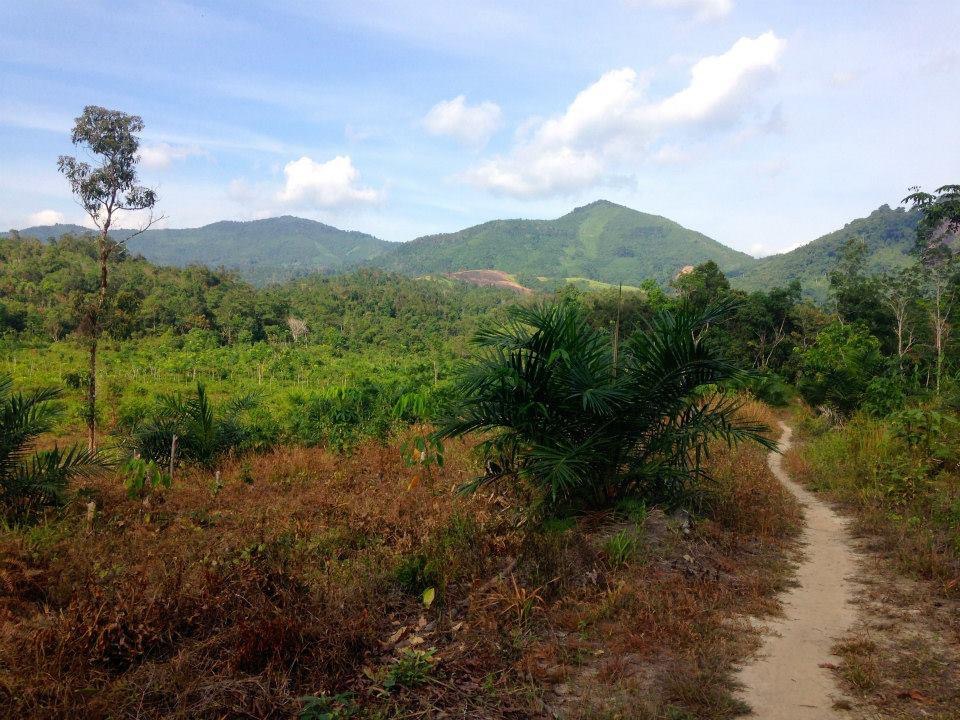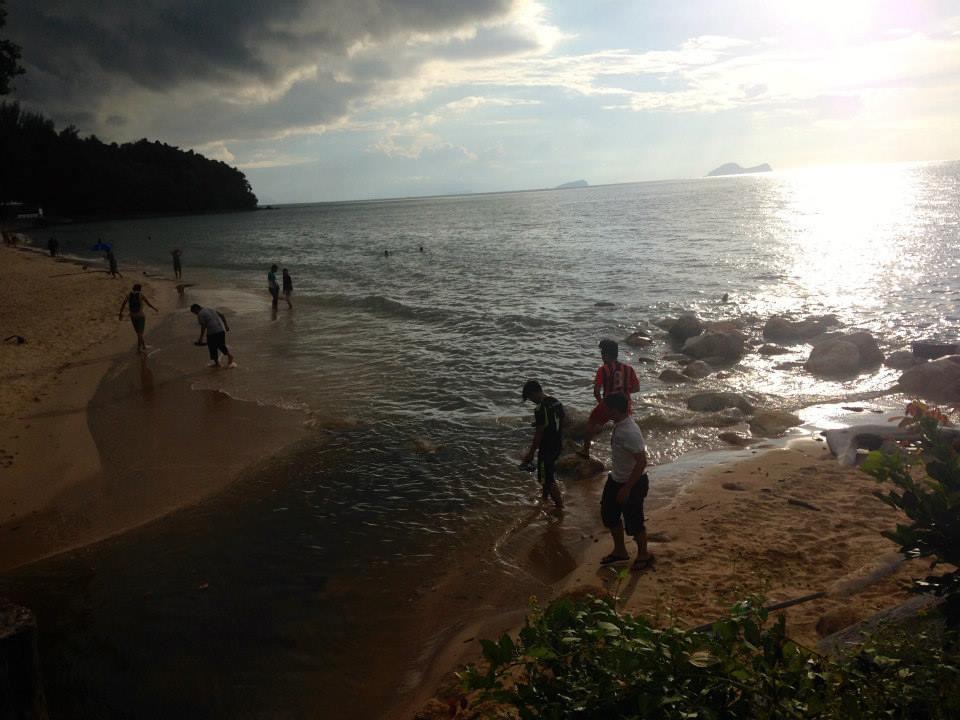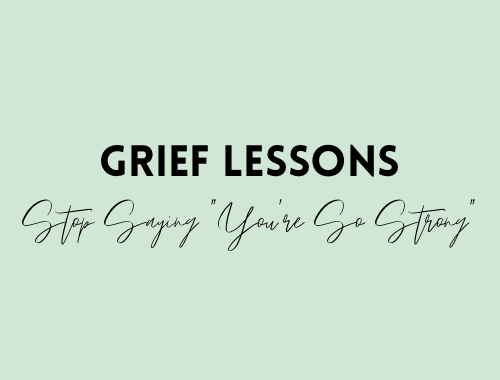
Facing My Grief in Indonesia: Where It All Began
There I was on July 7th, in the LAX airport, after finishing my first flight ever. I had never been this far from home, and I wasn’t even halfway to the destination. Oh, and my dad had died 10 days before this.
I was anxious, scared, and alone. I had no idea why I still decided to go on the trip. Something in my gut just told me it was right. I would be gone for an entire month, and I would only be with one other person I kind of knew. Everyone else was a stranger. None of them knew my story.
But, I was there. I had already gotten on the first flight, so I wasn’t going to turn back now. I had no idea what to expect, and I was kind of numb for the first few days. When I first got to LA, the shock kind of wore off. For the first few days after my dad died, everything is so go, go, go. There’s the funeral, the people checking in on you, and the arrangements. Then, it was my birthday, and also I was getting ready for this month-long trip.
Finally, after all was said and done, I had a second to stop. I just broke down. It all came rushing back to me. Did I make a mistake? Was I selfish for leaving my family right now? Would I be able to grieve? I had no idea, yet here I was.
Traveling to Indonesia
To keep things to the point, I made my way with my group from LAX to Tokyo to Singapore to Malaysia, and finally, to Indonesia. You see, I was on a mission trip. It’s a long story, but essentially, the point was to meet with college students and discuss faith, as well as travel to a local village to live there for a couple weeks and do Bible study and build a public toilet with them.

We arrived in this village, and I immediately was in culture-shock. It was a simple village. The whole thing was almost all on one main dirt road. We would each be living in a host family’s house with a thin mattress on the floor and mosquito nets above us. Almost nobody spoke a word of English, so the college students we were with would be our translators.
We loved our peers. They were fun, excited, and happy to be there – and we loved getting to bond with them over shared life experiences and commonalities across cultures.
At first, it was easy to pretend that I was okay. It was easy to pretend that I wasn’t going through something traumatic. I even started to believe it myself. I would occasionally confide in one of the leaders of the trip, but for the most part, I was just focused on the experience. Sometimes I would wonder if I was horrible for being so okay.
At this point, everyone on the trip knew that my dad had died just 10 days before the trip. But, I wasn’t one to really talk about it all that much. I might casually mention it, but I didn’t want that to be the focus. Then, that fateful day happened – everyone started getting sick.
I’m not talking about casually getting a cold or one person throwing up from food one time. I’m talking about every person in the group except for one person was throwing up for the whole day. Three people even had to go to the hospital 3 hours away because it was so bad.
Getting Sick
I hadn’t gotten sick at that point, and I was just waiting for it to hit. Surely, I wouldn’t be that lucky. I wasn’t. It’s a new experience to be sick from both ends – holding a bucket to throw up in while trying to not miss into the squatty potty from the other. It was difficult.
I threw up 10 times in 6 hours that day. It wouldn’t stop, and every time I would hydrate, it wouldn’t last. Other people in the group were also pretty sick on the same day. It turns out there were 3 of us, and the locals decided we should probably go to a local clinic also. I’ll never forget getting an IV in a random person’s bed in a tiny village in Indonesia.
The person giving it couldn’t get a vein for a while, so I was bleeding on this poor person’s sheets from my hand. Finally, it worked. They had secured us a car and there were 7 people squeezed into a 5-person car. I was in the passenger seat holding my bucket while literally every person in the village was watching. I threw up in my bucket in the car in front of all of them, with my IV bag hanging from the little hook above the window.
That’s when I finally gave up the facade. That whole time, I was able to pretend that I was strong. I was able to look like I had it together. I was able to be who I wanted to present to the world and grieve how I thought I should grieve – with courage and grace. But, the reality is that it was breaking me down. And now, everyone could see it. It was as if my body was signifying everything I was feeling on the inside and it finally couldn’t hold in the emotion any longer.
As we drove down that dark, dusty, dirt road late at night, I gave in. I gave in to my weakness, and I let myself be vulnerable. I just quit trying. The path was bumpy, and I threw up 2 more times on that hour-long drive. With every bump in the road, my IV bag was hitting the side of my face. I just started laughing.
For so long when my dad was sick, I couldn’t understand how he could make other people feel lighter when he was suffering so much. I didn’t understand how he could make me laugh when I knew he was so uncomfortable himself. Then, on that dirt path in the middle of nowhere in Indonesia, I felt comfort. In the middle of the most discomfort I have ever felt in my life – when I wanted nothing more than to hide and be in my own home in my normal life – I found comfort.

Facing My Grief
While I was trying to hide this pain, I was chaining myself to it slowly. I was chained to the idea that if I could just ignore it and keep going, I would be okay. I was so wrong. Freedom finally came when I just let myself give in to the weakness that I was feeling. Freedom finally came when I let myself accept where I was and what I was feeling and realize that I couldn’t control it anymore.
I was stuck trying to control every aspect of how I looked and how I felt, but that was just making everything worse. It was making me feel stuck and trapped inside my own head, all alone. Once I started laughing and joking about the situation I was in and realize that my weakness was okay to share with the world, it was then that I started opening myself up to actually grieve.
I wasn’t able to grieve before that. I didn’t even let myself. So, on that drive in the middle of the dark night in Indonesia, I faced my grief for the first time. I realized that I couldn’t control it, and the only way to finally find freedom to feel was if I stopped pretending.
Facing this wasn’t easy. It hurt. I didn’t want to be in that situation, but instead of trying to run from the pain and hide the pain from others, I just let them see it. They knew I felt horrible. They knew I was uncomfortable. But, I just accepted it for what it was.
Acknowledging Grief
That is the biggest lesson I have learned to this day in the grief process. The only way to grieve is to actually acknowledge the grief and keep moving forward through it. Acknowledge that you cannot control when it comes or what happens to you, but if you can just let yourself ride those feelings, you can actually move forward. If you keep pressing pause, everything starts to jam up inside your brain and your heart. What happens when there is no more room?
I felt connected to my dad more than I ever have on that car ride to the clinic. I realized that he was there with me, and he was showing me a small piece of his heart and how he made it through all his suffering while sick. It was only a fraction of the pain he felt, but even that small glimpse holds lessons that I was able to remind myself of even to this day.
After all was said and done, we eventually went back to our time in the village. I started to understand why I had gone in the first place. I had signed up for this trip months before I had any inkling that he would die. If I hadn’t gone on the trip, the person that I am would have holed up in my room for the rest of the summer. It would have been horrible for my mental health.
Going on that trip forced me to face my grief. I wasn’t able to hide from the world. I wasn’t able to stay with the comfort that would have distracted me from my grief. No, I was forced to face my discomfort. I was forced to face my grief head on, because there was no other choice.
It wasn’t fun at first. At times, I hated being so far away from home and not having my creature comforts I thought I needed. But, I was better for it. I was able to finally gain some perspective and not allow myself to play the victim card. The best part? I didn’t have to pretend to be strong. I was able to be weak, and I was able to be vulnerable.
Facing Discomfort
Facing my discomfort forced me to acknowledge how much pain I really was in. On the trip, every person had to share their story. I know, it might sound cheesy, and I dreaded it. But, it was amazing. I was put in a position where I had to share my story, and it felt good. It felt good to share how I was feeling and acknowledge the pain. It felt good to get it out of my heart and into the world.
I was also immersed in a new culture with new experiences and incredible nature. I started to see that the world was bigger than just me. Grief can almost take over your entire mind. It feels like the world is consumed by this one thing. When I was forced to face my grief and face the discomfort of being in a new place, I had to start recognizing that the world keeps going.
I share my story with you, because it matters. I finally realize that I wish someone had told me that it was okay to be weak. It doesn’t feel good to grieve. I hate it sometimes. Other times, I refer back to my mom’s words that tell me, “How lucky we are to have loved someone so much that it hurts so much to lose them.”
My Type A personality wants grief to be on a checklist where I can complete it and it’s done. But, grief doesn’t work like that. I faced my grief in Indonesia. I keep facing my grief every time I travel.
On this trip, I started to see how much I needed to be forced to get outside of my own head and my own world. I needed perspective. I believe that while travel doesn’t “fix” you, it can almost force you into a state where you either choose to distract yourself or you face reality.
Discomfort of Travel
The discomfort of travel helped me face the discomfort of grief. I saw that even when I didn’t want to, I couldn’t hide from the discomforts of travel. They come with the territory of traveling. This put my head and my heart in the exact right disposition for reflection and perspective that I can use to process and move forward.
I can start to learn to laugh at my discomfort. I can start to learn to live despite my pain. When I feel guilty for living my life, I can see that my dad is right there with me in every beautiful sunset. When I feel like I want a piece of home, I find my favorite snack in the grocery store halfway across the world. If I can’t figure out how to communicate with a local, I see that we all have something in common if we just look.

I faced my grief in Indonesia, and it was there that I learned I can face it at home too. It reminded me that all it takes is just living in the moment. When you travel, you live in the moment so much more than at home where there are a million distractions. Grief is just like this.
I have to live in the moments of grief. I have to accept the pain when it comes, and I have to feel it, but keep moving forward. There is no pause button on grief. There is no not getting sick in the middle of nowhere just because you don’t want to. It comes when you least expect it, and it hurts when you least expect.
Acknowledge it, face it, and keep moving forward. What if you just stopped pretending and faced your grief? What if you let yourself be weak?
You May Also Like

Iceland and London in 1 Week | Route and Itinerary
March 10, 2019
10 Incredible Stops on Going-to-the-Sun Road in 1 Day
December 30, 2020



2 Comments
Pingback:
Pingback: